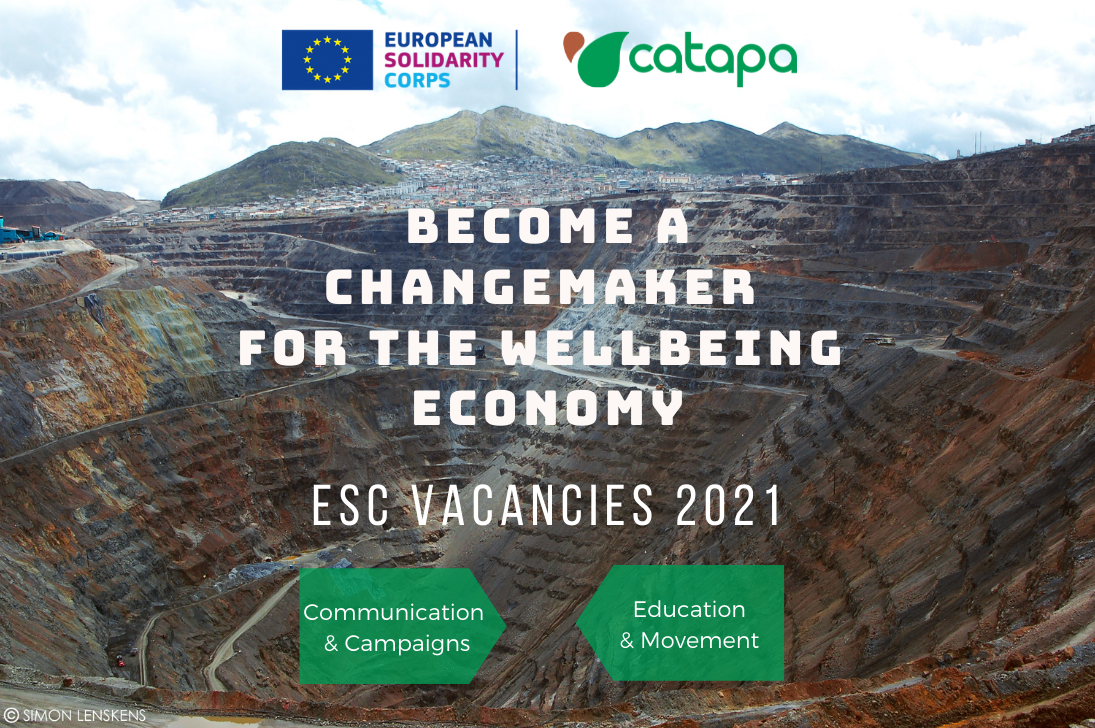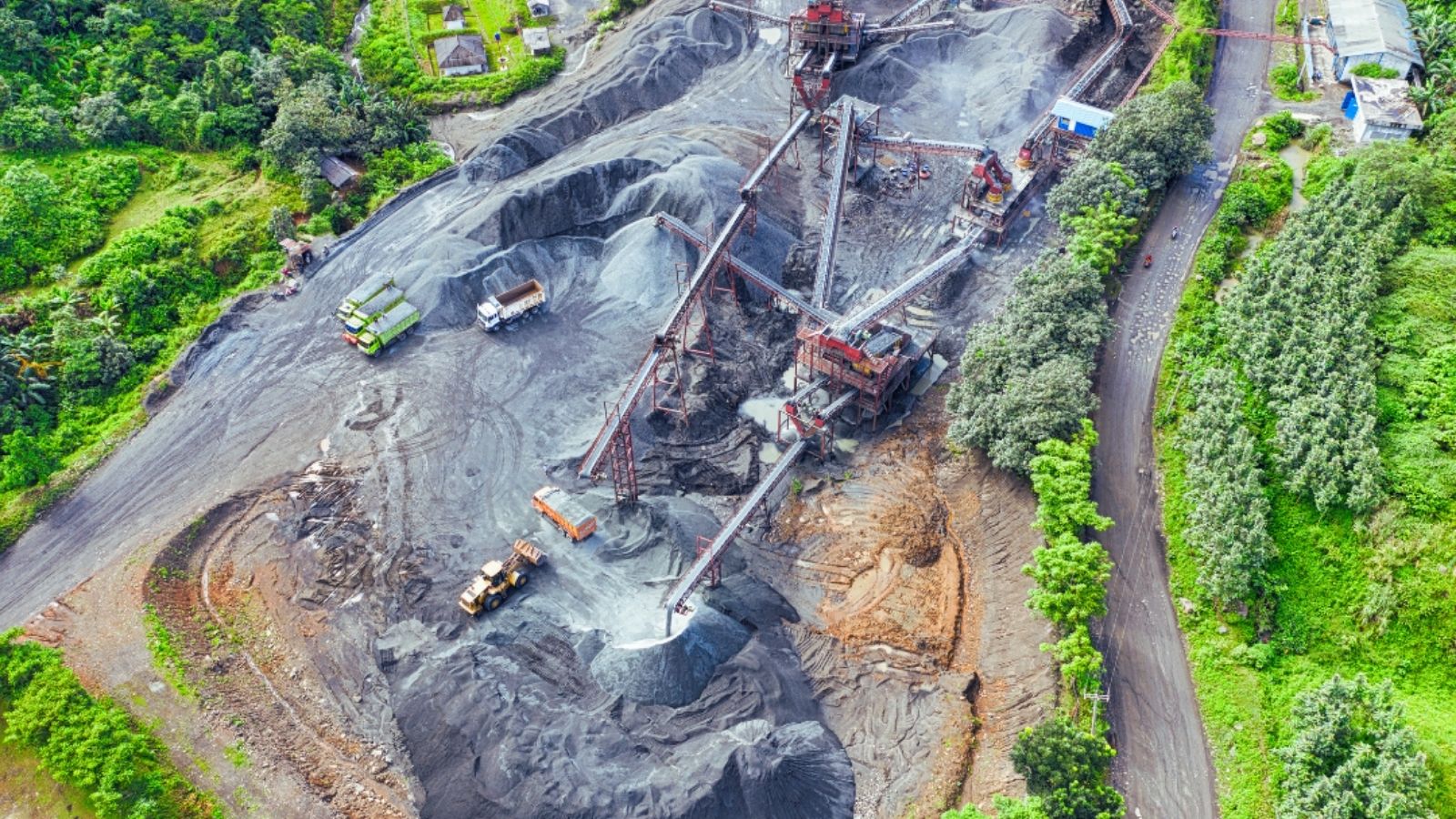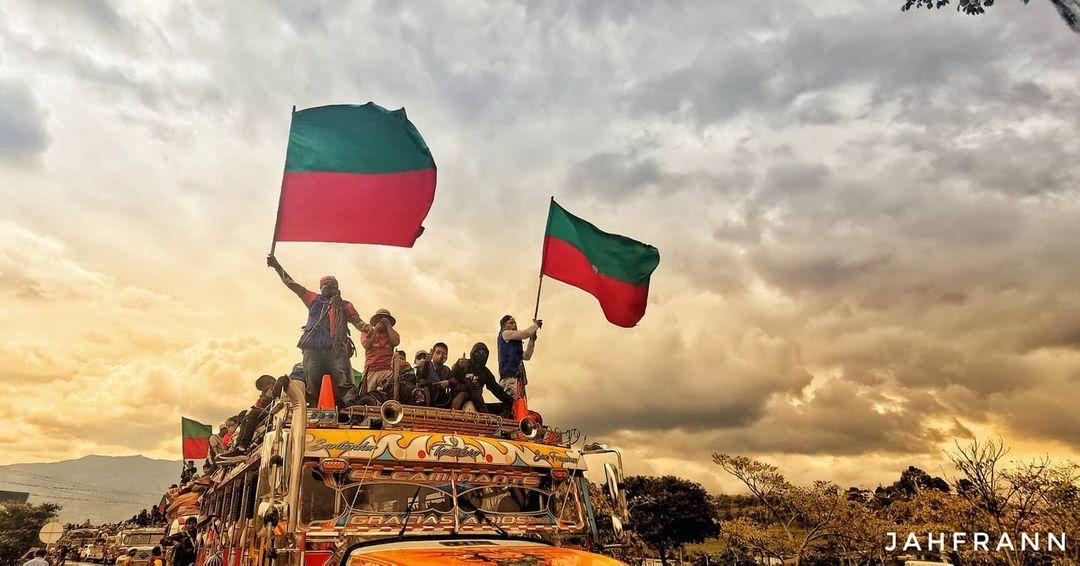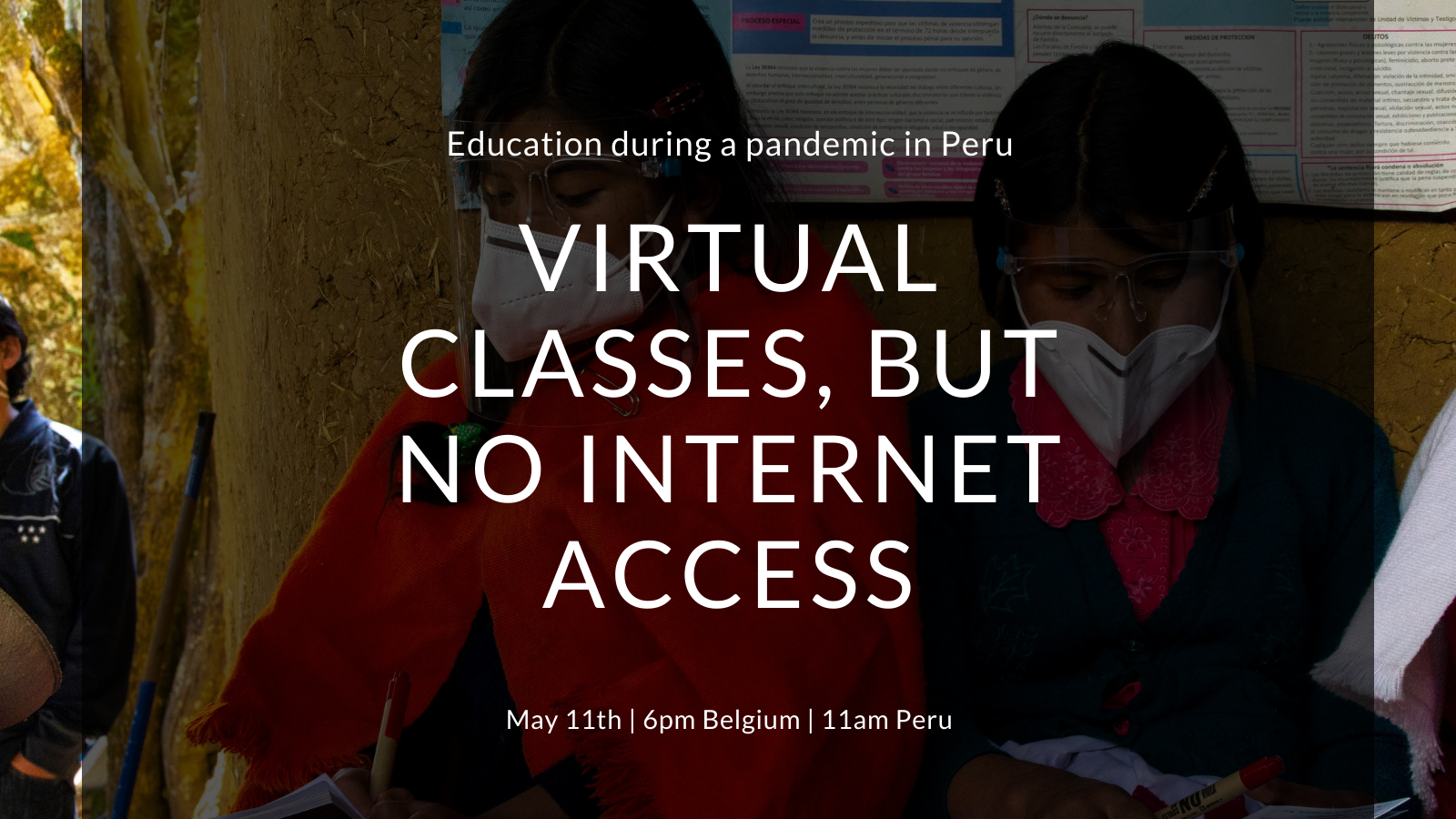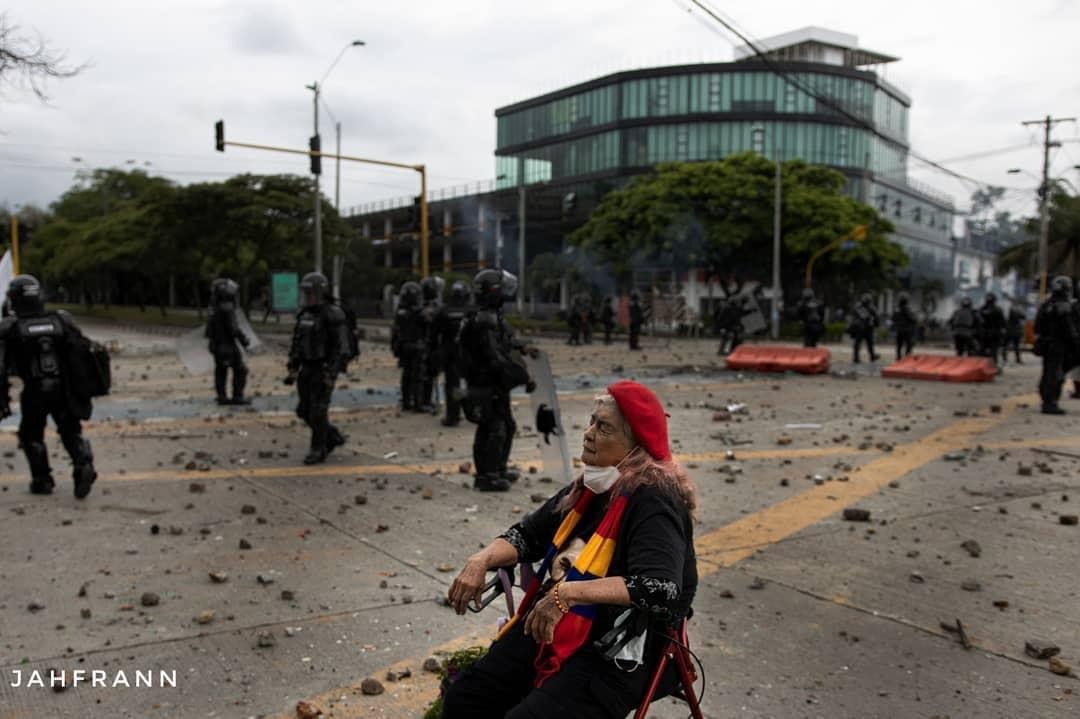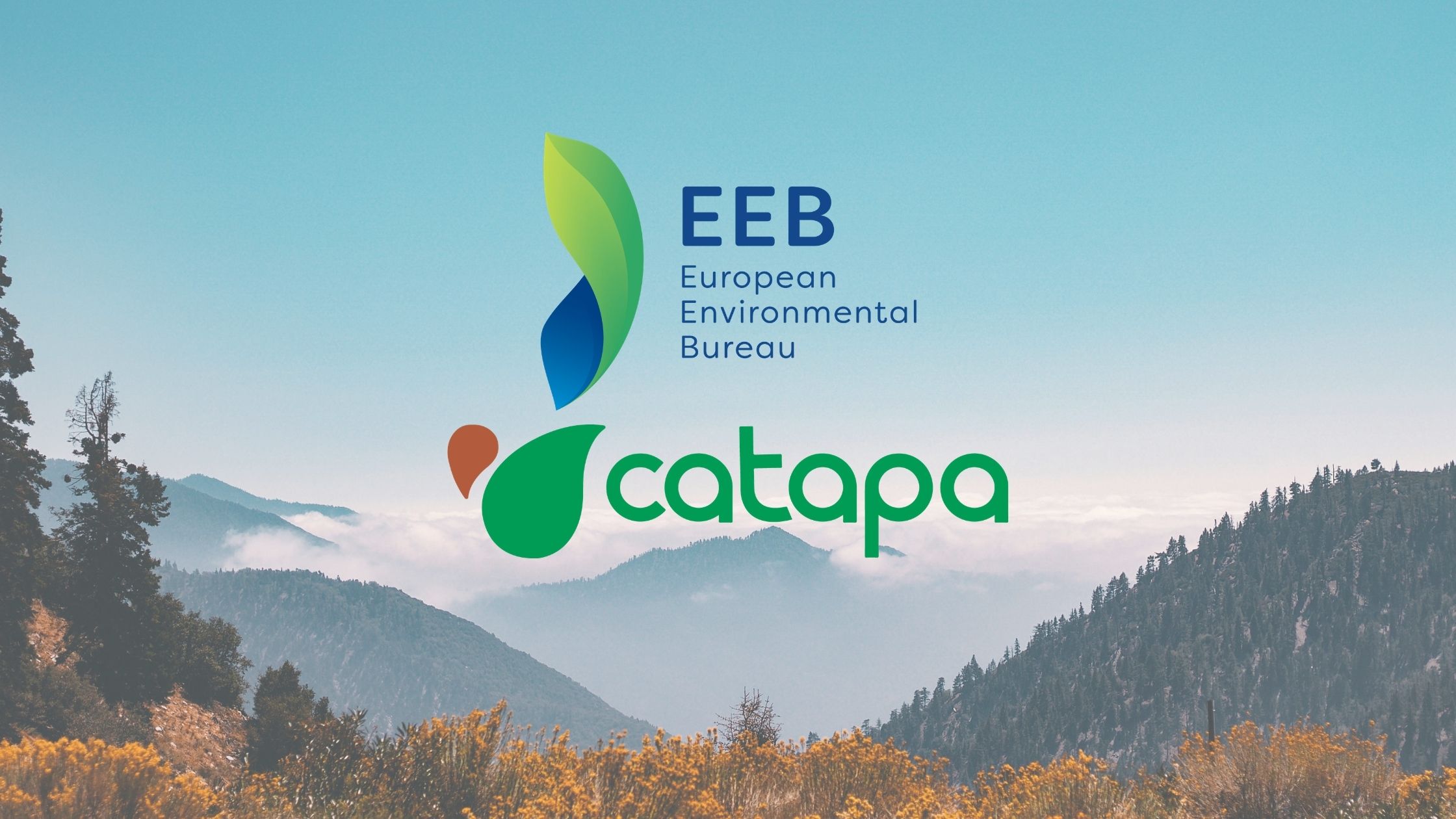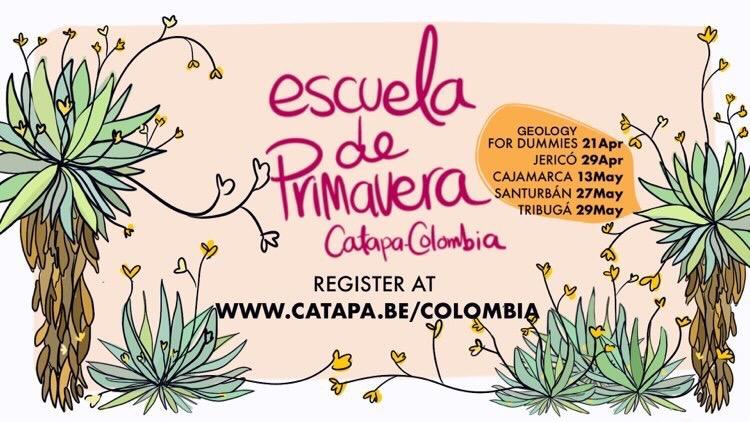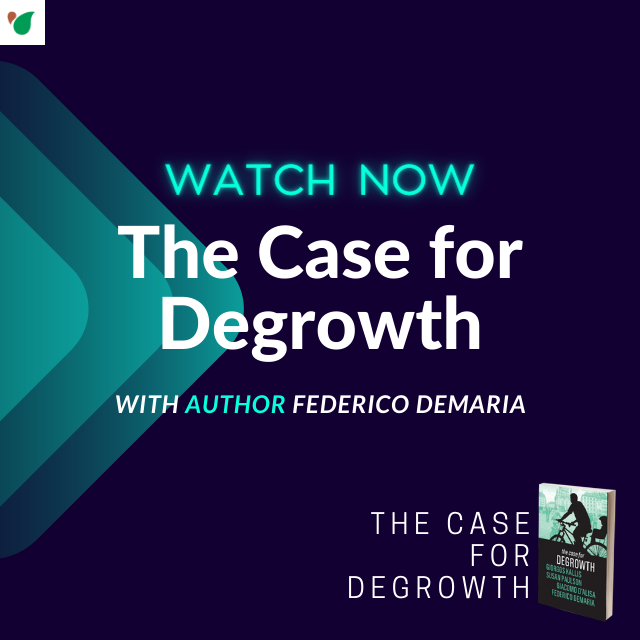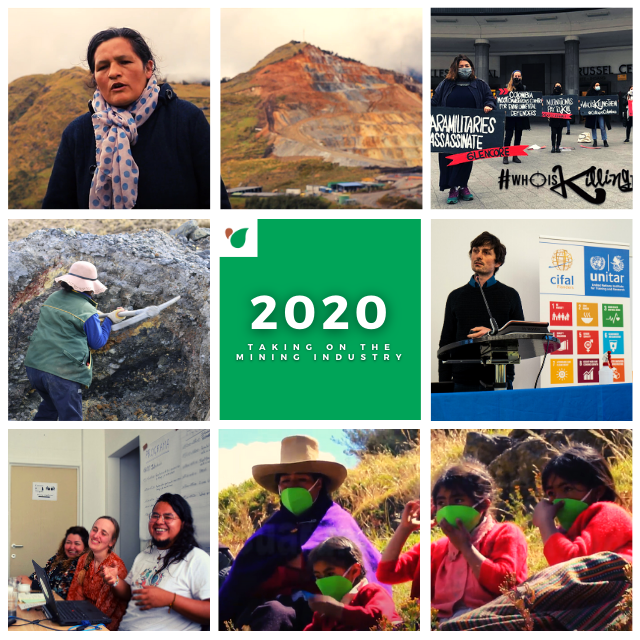ESC Volunteer Vacancies 2021 – Changemaker for a Wellbeing Economy
ESC Volunteer Vacancies 2021
Changemaker for a Wellbeing Economy
Education & Movement
Communication & Campaigns
CATAPA
CATAPA is a volunteer movement which strives for a world in which the extraction of non-renewable resources is no longer necessary. The extraction of such materials always entails major social and environmental impacts and fuels conflict. In working towards global social and environmental justice, we focus on mining issues (ecological disasters, human rights violations, etc.) in Latin America, where we support local communities in Ecuador, Bolivia, Peru and Colombia who are threatened by large-scale mining projects.
Our main activities are:
- Internationalisation of the struggle of our partners in Latin-America and capacity building
- Raising awareness on the impact of metal consumption amongst Belgian population
- Creating a movement for sustainable consumption and production
- Networking and research
CATAPA is a grassroots movement, which means that we are mostly dependent on the work of our volunteers – the Catapistas. As a grassroots movement, we also work together with other grassroots movements in our partner countries.
The Need for a Wellbeing Economy
Mining activities cause devastating environmental impacts and human rights violations across the globe. CATAPA’s main objective is to strive towards a world where mining is no longer necessary. Besides that, we urgently need to rethink our consumer society and the linear way we use metals. For this we need a redesign of our economy, we need an economy that focuses on the ‘wellbeing’ of people instead of economic growth and welfare. One of the means to reach this Wellbeing Economy is thinking of ways to make this economy just and circular. Only with a circular use of metals and a radical rethinking of our economic system and society, we will be able to counteract the destruction of ecosystems, social inequality and unbridled consumerism.
Catapa is going to work on the topic of Wellbeing Economy through:
- Raising awareness of the broader public: (social media) campaigns, educational activities, public actions …
- Searching and supporting solutions & alternatives
- Collaboration & networking with other organisations that focus on mining issues, Degrowth, Circular & Wellbeing Economy
- Collaboration with grassroot organisations in Latin America, defending the rights of communities affected by mining.
Who are we looking for?
We are looking for an ESC (European Solidarity Corps) volunteer to support the CATAPA movement, and in particular the campaigns on Circular Economy & Wellbeing Economy. The volunteer will be trained to think critically and spread knowledge of these issues and to encourage other young people to become active EU citizens. The tasks are flexible depending on your learning goals and the needs of the organisation.
You will be part of our office team (7 part-time staff + 2 ESC volunteers + variable number of interns) which supports the work of the movement. Since CATAPA is a volunteer movement, you will be working in close collaboration with motivated and enthusiastic volunteers.
Possible tasks
Education and Movement
- Organise awareness raising and training activities for a variety of target groups (training days/weekends, documentary screenings, workshops, info evenings, public actions…)
- Develop educational tools and manuals
- Support volunteers and contribute with volunteer management tasks
- Participate actively in the Education & Movement working group and its activities
- Help to develop and implement our central campaign on ‘wellbeing economy’.
- Write, revise and proofread articles, educational tools and reports
- Possibility to help with research tasks linked to mining and/or circular/wellbeing economy
- Some administrative tasks related to the daily functioning of our office with the possibility to get an insight in the management of a non-profit organisation
- Help out with organising our International Speakers Tour: Open Min(e)d
- Take part in our Changemakers programme
- Possibility to develop and implement your own projects.
Communication & Campaigns
- Assist with creating promotional material for social media and posters
- Help with the communication and promotion tasks for events
- Helping to develop and implement our central campaign on ‘wellbeing economy’.
- Contribute in managing our social media channels (Facebook, Instagram, Twitter)
- Help in keeping our website updated
- Write, review and proofread articles
- Helping with the elaboration of low-threshold graphic design
- Participate actively in the Communication working group and its activities
- Support volunteers and contribute to volunteer management tasks
- Assist in the organisation of various educational activities (International Speakers Tour ‘Open Min(e)d’, training weekends, public actions, info-evenings, documentary screenings…)
- Take part in our Changemakers programme
- Some administrative tasks related to the daily functioning of our office with the possibility to get an insight in the management of a non-profit organisation
- Develop and implement your own ideas (for activities) into the work of CATAPA.
Requirements
Education and Movement
Essential
- Motivated to work with volunteers
- Interest in learning about the social and environmental movement and mining issues
- Good command of English
- Independent, proactive worker
- Good communication skills
- Willing to contribute to positive change in the world we live in
- Team player with a flexible attitude
- Age: below 31 years
Desirable
- Knowledge/experience on or interest to learn about:
- Developing educational material (e.g. workshops)
- Organizing educational events
- Volunteer management
- Circular and degrowth economy, environmental movements and/or international development
- Implementation and coordination of campaigns
- Good knowledge of Dutch and/or Spanish
Communication & Campaigns
Essential
- Interest in learning about the social and environmental movement and mining issues
- Good command of English
- Independent, proactive worker
- Motivated to work with volunteers
- Good communication skills
- Will to contribute to positive change in the world we live in
- Team player with a flexible attitude
- Age: below 31 years
Desirable
- Knowledge/experience on or interest to learn about:
- Communication strategies
- Design and layout skills
- Circular and degrowth economy, environmental movements and/or international development
- Volunteer management
- Managing social media and websites
- Good knowledge of Dutch and/or Spanish
What do we offer?
- A warm welcome in our horizontally organized movement with plenty of learning opportunities and new connections
- A dynamic & motivated team of employees and volunteers
- Monthly fee: Cohousing accommodation of your choice (with a max. rent of €400) and a reimbursement to cover daily expenses of €400.
- A personal learning trajectory coached by one of CATAPA’s employees, one language course (Dutch, English or Spanish) and options to follow trainings to develop your personal skills.
- Work-related expenses are paid by CATAPA
Important: This call is part of the European Solidarity Corps. It’s an European Union initiative which creates opportunities for young people to volunteer in projects abroad. This means Belgian people can’t apply for this vacancy.
The volunteer positions will start from the 1st of September, for a period of 12 months and 30 hours a week.
Interested or more information?
Please send your CV and motivation letter to communication@catapa.be before 22h00 on the 30th of June 2021. Please, remember to specify which one of the two positions you are applying for in the subject of the email and in your motivation letter. If you have any questions concerning these vacancies, don’t hesitate to contact us at info@catapa.be.
More information: www.catapa.be




